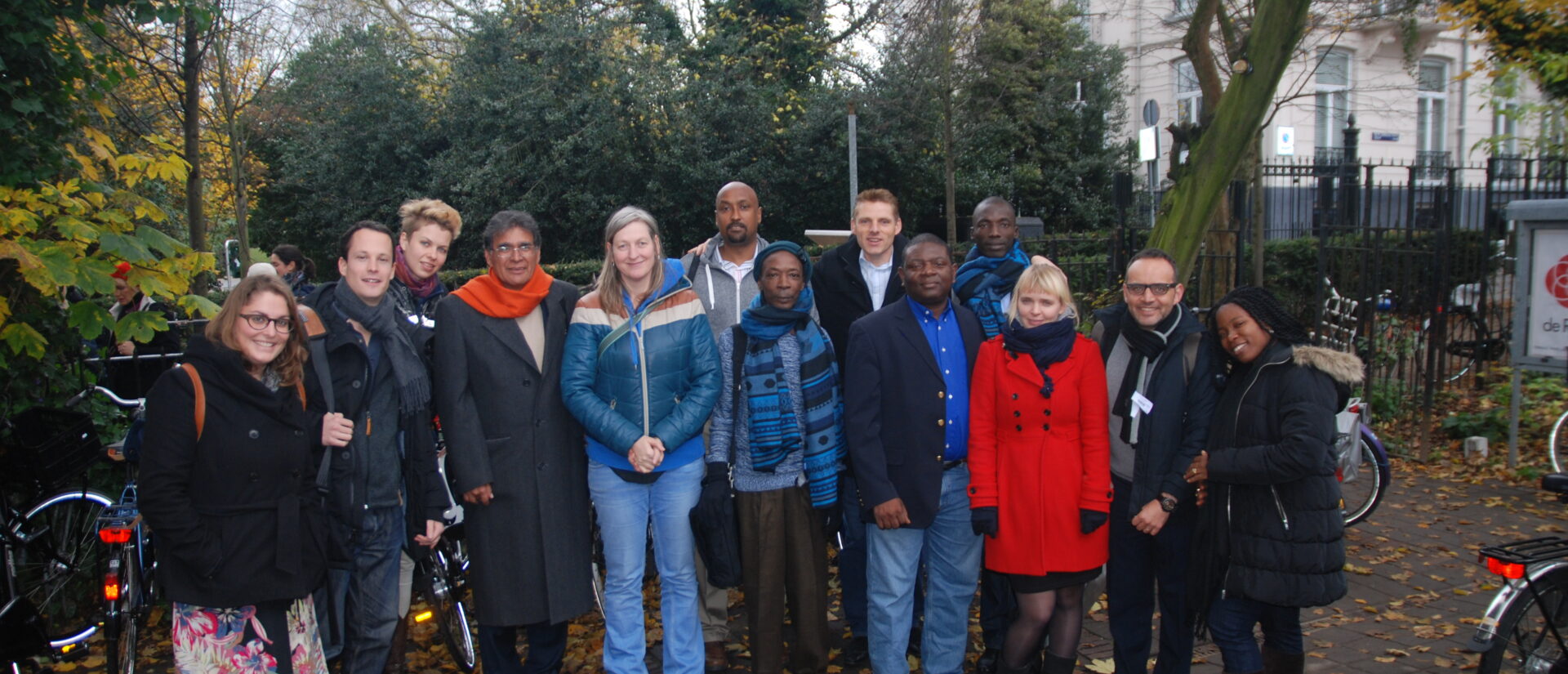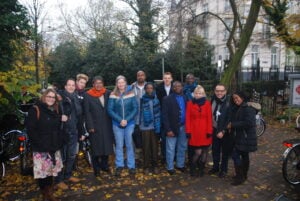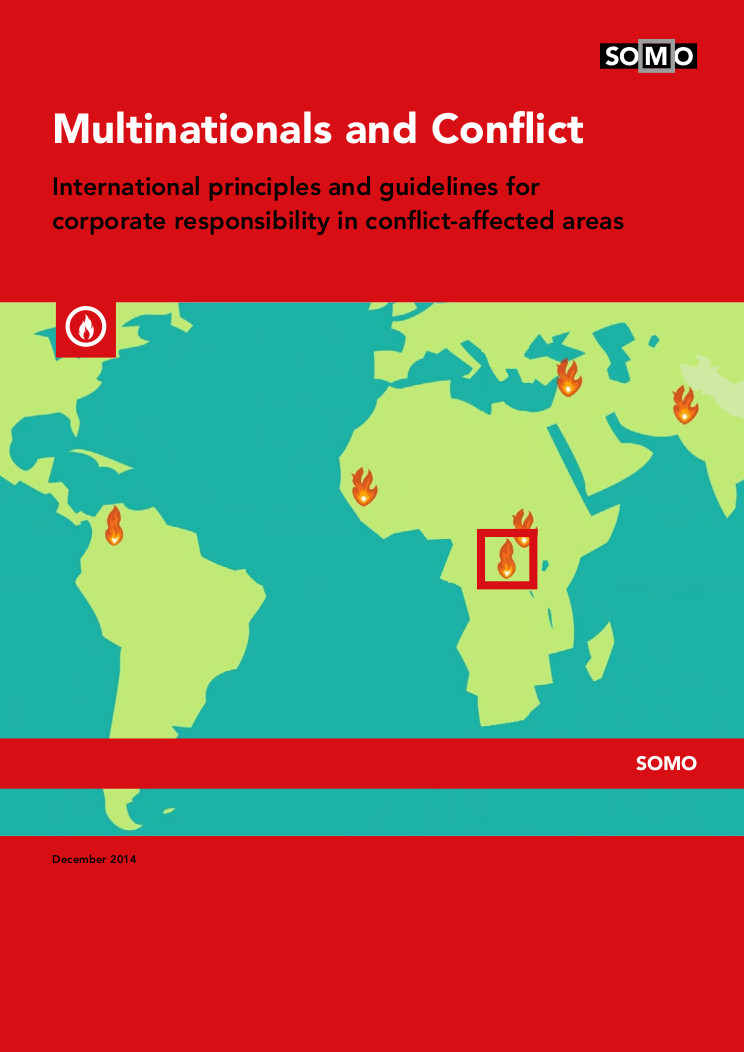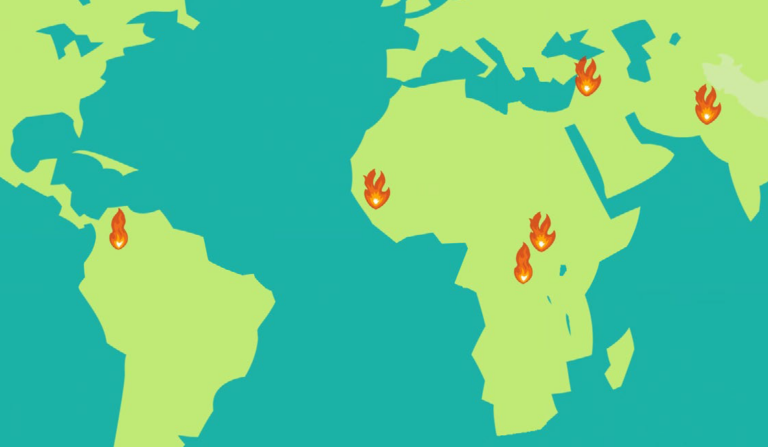
Successful kick-off meeting for the Multinationals in Conflict-Affected Areas Programme
In the last week of November, SOMO hosted a successful kick-off meeting for the Multinationals in Conflict-Affected Areas Programme.

Partner organisations from Liberia, South Sudan, Colombia and Sierra Leone braved the cold and joined us for a week in Amsterdam to discuss joint future plans and the current state of affairs in their countries. And to discuss their work with communities that have to deal with misconduct by multinational corporations.
Our common goal within this programme is to ensure a fair and sustainable reconstruction process by empowering local communities to benefit from private sector development. We want to ensure that multinational corporations operate in a responsible and conflict-sensitive way.
Cooperate with communities
At this point in time, this is not always the case unfortunately. Our partner working in Liberia, Green Advocates(opens in new window) , told us for example that multinationals operating in their country often disregard their corporate social responsibility commitments. Green Advocates tries to hold companies accountable for their actions. In order to do so, it works closely with communities and advises them on their rights and the remedies open to them.
Forced relocation and insufficient compensation
During the meeting, we discovered that many similarities exist between the four countries. Our partner in Sierra Leone, MADAM (Mankind’s Activities for Development Accreditation Movement)(opens in new window) , deals with issues in the same sectors as its neighbour in Liberia: agriculture and mining. Forced relocation and insufficient compensation are major problems encountered by communities in Sierra Leone.
Multinationals and paramilitaries
In Colombia, forced relocation is a key issue in the work of our partner organisation Indepaz(opens in new window) . Violent conflict between the government and rebel groups has resulted in the displacement of millions of people in recent decades. But this is not the only reason for displacement. Communities are often forced out by private sector developments, such as mining or palm oil operations. Close relations between multinationals and paramilitaries are another major cause of human rights violations in Colombia. Companies often contract paramilitaries for security purposes. However, their use of extreme force against communities and union leaders illustrates the negative impacts that multinationals can have when they operate in conflict situations.
Land ownership
South Sudan is another country where multinationals should be aware of the many risks that accompany doing business in a country that has been severely affected by conflict. The South Sudan Law Society explained the vulnerability of the state in South Sudan and the different kinds of laws and agreements that exist regarding land ownership. It stressed the importance of customary rights for communities. Land grabbing is increasingly taking place, and to prevent new conflict arising, the South Sudan Law Society(opens in new window) has published a community engagement manual which advises communities on how to secure their livelihoods. The relationship between oil companies and conflict in South Sudan will also be an issue on our research agenda.
Share experiences and learn
It was very interesting and stimulating to see the exchange that took place between all organisations. Even though the context of each country and conflict differ, multinationals do not stick to country borders, nor do their violations of rights. Therefore, all the organisations participating in the Multinationals in Conflict-Affected Areas Programme encounter issues such as poor working conditions, weak government oversight, forced relocation, insufficient compensation and a lack of free, prior and informed consent. The programme will allow SOMO and its partners to share experiences and learn from each other’s work, especially regarding engagement with communities and ways of supporting those communities to stand up for their rights when affected by the misconduct of multinationals. The programme will include company research, training courses on community empowerment and the publication of papers on corporate accountability in conflict contexts, the role of multinationals in the war economy and many other issues. In addition to these four countries, we will also work on the Democratic Republic of Congo, with a focus on the role of conflict minerals. The outputs of our programme will be used to engage with companies and governments with a view to improving multinationals’ conduct in conflict-affected areas and ensuring they contribute to peace rather than profit from conflict.
Partners
-
MADAM
Related content
-
Multinationals and Conflict Published on:Mark van DorpPosted in category:PublicationMark van Dorp

-

-
Posted in category:Publication
-
 New brochure and training support human rights defenders to file complaints against multinationalsPosted in category:NewsPublished on:
New brochure and training support human rights defenders to file complaints against multinationalsPosted in category:NewsPublished on:

